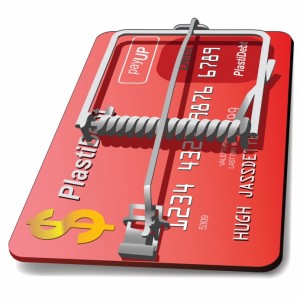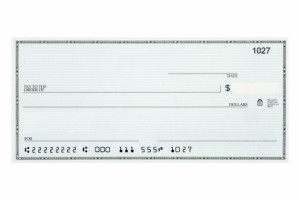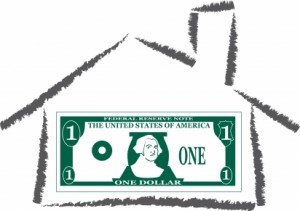Archive for 2009
Wednesday, December 30th, 2009
Q:
Hi my name is Linda M
I have a very low credit score, due to a few accounts going to collections. Right now I’m working with the collections company to pay the items off. From reading the articles on your site which are Great by the way. To rebuild credit get a credit card which would be the best type of card for someone with bad credit. Would it be a Secured Card or a Subprime Card and what is the difference between the two?
A:
Hi Lina,
This is a great credit card question. The main difference in these cards is the approval process. Sub prime credit cards typically have credit requirements and will extend credit up to $500 to start with. Usually there fees are higher than secured credit cards. Secured Credit Cards do not extend credit to you, and require a deposit of $200 to $300 from you. Everyone gets approved for secured credit cards, not everyone will be approved for a Subprime credit card. I would recommend our secured credit card on our site under credit cards section.
Mike Clover
Posted in Uncategorized | Comments Off
Tuesday, December 22nd, 2009
 Protecting your personal credit from identity theft is a crucial part in becoming and staying financially successful. Identity theft is when someone, without you knowing, uses your personal information to apply for or obtain any kind of loan or credit. This can cause significant problems with your credit when the person who wrongfully used your information decides to default on the payment after actually receiving the monetary loan or using the credit cards that are in your name. After all, why would they make payments on borrowed cash that won’t affect them negatively if they default? It will only affect YOU negatively, and there is almost no way to prove that it wasn’t actually you who borrowed the money. So, how do you avoid getting caught in the identity theft trap that will crush your credit scores before you even find out that its happening? Protecting your personal credit from identity theft is a crucial part in becoming and staying financially successful. Identity theft is when someone, without you knowing, uses your personal information to apply for or obtain any kind of loan or credit. This can cause significant problems with your credit when the person who wrongfully used your information decides to default on the payment after actually receiving the monetary loan or using the credit cards that are in your name. After all, why would they make payments on borrowed cash that won’t affect them negatively if they default? It will only affect YOU negatively, and there is almost no way to prove that it wasn’t actually you who borrowed the money. So, how do you avoid getting caught in the identity theft trap that will crush your credit scores before you even find out that its happening?
There are a few ways to stay clear of having your identity stolen. Some are common sense, like cutting up your credit/debit cards after they expire or immediately cancelling them after you lost the cards. However, some other ways that are affective are not so known in the public world. First, don’t ever carry your social security card on you. You could easily be robbed or lose your purse or wallet. When this happens, the wrong person might come across your very private (or should be) social security number. With the wrong people in possession of your social, some can easily obtain credit or make fraudulent claims under your name, which will, in turn, destroy your credit scores or cause you to be the suspect in a crime.
Monitoring different accounts is also a sufficient way to protect yourself from identity theft. In case someone happens to gain access to your bank accounts or gain possession of your personal information, if they are spending money in your name or taking money from the ATM from your account, monitoring your bank account will catch this at an early stage, and most banks will work with you in seeing that you are protected from then on, as long as you notify them in a timely manner.
One of the most effective ways of protecting yourself from identity theft is monitoring your credit scores. There are different sites you can log into, and, typically for a monthly fee, you can monitor your scores and any activity that happens with your credit. Most sites will send you alerts via email, and even call you when something bazaar or unusual has happened on your reports.
If you get caught in the mix of identity theft, make sure you call your bank and credit card companies, and let anyone involved in the situation know that your identification has been stolen. Most companies and banks are very helpful in these situations, so make sure you take care of it immediately. Identity theft is inevitable in America, but if you are careful, you can prevent it.
Author: Kyle Gilbert
CreditScoreQuick.com your resource for free credit reports, credit cards, loans, and ground breaking credit news.
Posted in Uncategorized | Comments Off
Sunday, December 20th, 2009
 Interest rates are beginning to inch upward, and that always signals an increase in the number of mortgage refinance applications. Homeowners typically wait until the market reaches the bottom and then try to move quickly when rates start to rise. Interest rates are beginning to inch upward, and that always signals an increase in the number of mortgage refinance applications. Homeowners typically wait until the market reaches the bottom and then try to move quickly when rates start to rise.
This time, however, it won’t be so easy.
In spite of government programs that say you can refinance your mortgage for 105% or even 125% of your home’s present value, the banks prefer that you have at least 10% equity.
On top of that, even if you’ve paid on time for the last 5 years, they’ll make you prove that you deserve the loan. Gone are the streamlined loans that required nothing more than a good credit score.
Of course, the good credit score is still required. But now you can expect to furnish documents and more documents.
If you’re about to apply for a mortgage refinance, you might as well start gathering those documents and take them along when you visit your mortgage broker or bank.
Start with your last two most recent pay stubs, three months of bank and brokerage statements, and two years worth of tax returns, with W-2’s.
Then gather all the documentation on anything you do in addition to salaried employment. Do you have rental properties? Bring all the information. Do you have a small business that you operate on week-ends? Bring all the information. Do you or your spouse receive Social Security checks or the proceeds of a settlement? Bring all the information.
Next, gather everything about your house. Start with your original title insurance policy and your homeowner’s insurance policy. If you have survey information or if you have documentation of a well or septic system, bring it along.
You’ll also be required to sign an IRS Form 4506-T. This form authorizes the lender to get a transcript of your past tax returns from the Internal Revenue Service. While it used to be required only on self-employment loans, now every borrower must agree. It seems they just don’t trust you to bring in a true copy of the tax form you filed.
Finally, all the paperwork must be perfect. Investors are refusing to buy loans with even the slightest imperfection in the paperwork. So, since lenders make their money by selling those loans, be prepared for their nit-picking.
By the time you’ve finished getting your home mortgage refinanced you may feel like an accused criminal, and you may be completely worn out. But if you can shave a couple percent off your interest rate, it will be worth the hassle.
Author: Mike Clover
CreditScoreQuick.com your resource for free credit reports, credit cards, loans, and ground breaking credit news.
Posted in Uncategorized | Comments Off
Saturday, December 19th, 2009
 The experiences of the past several months have taught us all one thing: We need to get out of credit card debt, one way or another. The experiences of the past several months have taught us all one thing: We need to get out of credit card debt, one way or another.
The credit card companies are going to keep increasing rates and fees, and before long a $100 payment might only reduce our balance by $50. It may not be that extreme, but it’s a given that more of each payment will go to interest and fees, and less to paying off the debt.
We do have some relief coming in February 2010, when card issuers will be required to apply anything over the minimum payment to our balance carrying the highest rate, but by then, all our rates may be much higher than we are comfortable with.
So – we need to be rid of them.
If you have just one card, you can throw any extra money at it and get it down quickly. But most of us have more than one, so the first thing to do is take a good look at the balances, the interest rates, the annual fees, and the credit available on each.
One approach is to consolidate all of your balances onto the card that carries the lowest interest rate. At one time, we saw promotional rates as low as 0.99% – and moving everything to that card would allow for a fast pay-down.
I haven’t seen anything that low for the last 6 months, but maybe it exists. But – even if it does, there’s a second factor to consider before you transfer all your balances. If you use more than 30% of the available credit on any one account, you’ll harm your credit scores. Look at the available credit and keep your future plans in mind before making this decision.
Remember also that even if you have a $20,000 credit limit and transfer only $6,000, you could open your next statement and find that your credit limit is now only $6,000. Credit card companies have been doing this to consumers across the board,
The other approach is to cut back on discretionary spending and add extra money to the payment on your cards. You could spread that out evenly, but getting rid of a payment entirely is more satisfying.
Most would recommend paying off the balance with the highest interest first. That will save you the most money. But if you need the mental and emotional boost of getting something – anything – paid in full, look instead to the card with the smallest balance.
Then, when you’ve paid that off, apply all the money you were paying on that card to paying off the next one. You’ll have success faster than you think.
Author: Mike Clover
CreditScoreQuick.com your resource for free credit reports, credit cards, loans, and ground breaking credit news.
Posted in Uncategorized | Comments Off
Thursday, December 17th, 2009
 Just because your credit score might prevent you from purchasing a home, it probably won’t prevent you from purchasing a car. Because car loans are for less money and for shorter terms than home loans; and because cars are easier to repossess than houses, lenders aren’t quite as strict. Just because your credit score might prevent you from purchasing a home, it probably won’t prevent you from purchasing a car. Because car loans are for less money and for shorter terms than home loans; and because cars are easier to repossess than houses, lenders aren’t quite as strict.
In fact, if a home mortgage lender has classified you as “sub-prime” that’s no reason to assume that you’ll carry the same classification when buying a car. That’s why it’s important to shop around for your loan and to avoid car lots that primarily cater to sub-prime borrowers.
The fact is, you may qualify for better rates and terms than you can get from those lots. But if you assume it’s the best you can do and go straight to a sub-prime lender, you’ll automatically pay higher interest.
Start with the bank or credit union where you have checking or savings accounts. Then see if perhaps your insurance company offers auto financing. You can also find lenders on line. Look for the cheapest money you can find – the lowest interest rate and the fewest number of payments.
Too many buyers look at the monthly payment rather than the total cost. Be smart and look at the total cost first. If you have to stretch that car loan out to 84 months, you should look for a less expensive car.
Since credit inquiries do affect your credit scores, consolidate your loan shopping into a short time-frame. When potential lenders and the credit bureaus can clearly see that several inquiries all point to one purchase, several inquiries will have the effect of one inquiry.
You should do your car shopping ahead of time, so you have a good idea of the car you want and thus loan value you’ll need, but while you’re shopping, don’t allow car salesmen to check your credit.
What to beware of when searching for a car loan:
• Loan contracts with add-ons. Steer clear of any loan that’s contingent on purchasing extended warranties, insurance, or other after-market services. This is a red flag that you’re dealing with a sub-prime lender and are about to pay too much for your loan.
• The “yo-yo” sale. Some car dealers offer loans and let the customer sign and drive away with the car without finalizing the terms of the loan. The buyer then finds out days or even weeks later that the terms of their loan have changed. They may be required to bring in more money for the down payment, their interest rate may be higher, or the payments larger. Be sure the terms on the loan are final before signing the document and taking the car. This practice sounds far-fetched, but it happens to about 4.5% of all buyers – and 11% of all buyers with bad credit.
Author: Mike Clover
CreditScoreQuick.com your resource for free credit reports, credit cards, loans, and ground breaking credit news.
Posted in Uncategorized | Comments Off
Thursday, December 17th, 2009
 If you’re trying to prove your credit worthiness, you want all of your accounts in good standing to show on your credit report. They’ll raise your credit scores and show potential creditors that you’re a good risk. If you’re trying to prove your credit worthiness, you want all of your accounts in good standing to show on your credit report. They’ll raise your credit scores and show potential creditors that you’re a good risk.
But, unfortunately about 15 million Americans have mortgage loans that don’t show up on credit reports.
These are generally loans with small Credit Unions that don’t report to the credit bureaus. Since reporting does carry a charge, not all credit unions choose to do so.
However, some do, and mistakes do happen. So before you take any other steps, contact your creditor and ask if your account was simply overlooked in their reporting. If so, ask them to send an update.
It could be that they report to one bureau and not to the others. It could be that somehow your account fell through the cracks. It could be that they simply don’t report.
If they do report to one bureau, point out that entry to your would-be creditor and explain that it is with a small credit union that doesn’t report to all.
If they don’t report to any credit bureaus, you’ll won’t be able to get that account listed, but you CAN improve your chances of getting the new loan at good terms by providing your own documentation.
Gather up your year-end reports for the years you’ve had the mortgage, along with current statements showing that your payments are current. Under Section 202.6 (b)(6) of the Equal Credit Opportunity Act, you as a consumer do have a right to report this information, and your would-be creditor is obligated to consider it when determining your credit worthiness.
According to a recent Bankrate.com article, a gentleman named Michael Nathans is working on a Web-based consumer self-storage application for bill-paying information that should meet all reporting requirements. This would allow consumers to present their own financial file to any lender and have it scored.
In the meantime, be sure to check your own credit reports regularly, and take steps to correct any errors you find.
If you have accounts in good standing that aren’t reported, do the research and see if your creditor will report them upon request. If not, do take along your own documentation when requesting a loan.
This means that good record keeping on your part is a must. If you haven’t already set up files and a good bookkeeping system, do it now.
Author: Mike Clover
CreditScoreQuick.com your resource for free credit reports, credit cards, loans, and ground breaking credit news.
Posted in Uncategorized | Comments Off
Wednesday, December 16th, 2009
 Does your bank offer free checking accounts? You should take advantage, but be aware of the added fees that could add to your costs. Does your bank offer free checking accounts? You should take advantage, but be aware of the added fees that could add to your costs.
Banks offer different varieties of “free” accounts. Some offer free checking as long as you maintain a set balance in the account. With this type of account, some of the other bank services are also free. For instance, cashier’s checks, counter checks, and use of a debit card.
With the account that doesn’t require a minimum balance, you may pay extra for those services. You need to consider how often you might need to use those services before opting for the free account. For instance, if the bank charges a monthly fee of $6 but a fee of $7 for a cashier’s check and you need 2 or 3 of them every month, you’re better off paying the monthly fee.
Some bank fees can be easily avoided by good bookkeeping practices. The insufficient funds fee is a prime example. This can be as high as $39 per instance, so failure to record a $100 check and then writing subsequent insufficient funds checks for $10 or $15 could cost you plenty.
If you always play it close to the wire and your bookkeeping skills are imperfect, consider paying for overdraft protection. Remember that repeated overdrafts will not only drain your money, they’ll harm your credit scores.
ATM fees can also add up. Generally, if you withdraw funds from your own bank’s ATM, there’s no fee. But if you find yourself short of cash when you’re away from home, you could be hit with a fee as high as $5 per transaction for using a different bank’s ATM. Again, planning and bookkeeping will come to your rescue.
If you know you’ll need cash for a night on the town – get it while you can go to your own bank.
Other fees your bank might charge include:
• Coin counting
• Providing a credit reference
• Charging you for depositing a check that bounces
• Replacing a lost ATM / debit card
• Assisting with account research – helping you see why your records and the banks’ don’t match
Once upon a time, the only choice you had to make when opening a bank account was the color of your checks. But those days are gone. Now you need to compare the offerings in order to make a good choice.
Thus, before you open any account, ask for a schedule of the fees related to each type you’re considering. Then consider how you will use the account. You may be better off in the long run if you use an account with a minimum balance, or with a pre-set monthly fee.
Author: Mike Clover
CreditScoreQuick.com your resource for free credit reports, credit cards, loans, and ground breaking credit news.
Posted in Uncategorized | Comments Off
Wednesday, December 16th, 2009
 If you are an investor or a would-be investor with a high credit score, you do have a chance at finding a loan. And of course, with prices at near rock-bottom, now is the time to invest in residential rental real estate. If you are an investor or a would-be investor with a high credit score, you do have a chance at finding a loan. And of course, with prices at near rock-bottom, now is the time to invest in residential rental real estate.
First, you need a good sized down payment. Since mortgage insurance won’t cover investment property, you need 20%. But if you can come up with 25% or more, you’ll stand a better chance of getting the loan.
To get good rates – and perhaps to get approval at all – your credit score must be 740 or higher. A score of less than 740 will mean you’ll either pay points or a higher interest rate.
On top of the down payment, you’ll need money in the bank for reserves. The bank will want to see that you have enough to pay for all your expenses – including personal expenses – for 6 months. If you own multiple rental homes, the bank will want to see that you have sufficient reserves to cover all of them. This protects their interests and lets them know that you’ll still be able to make the payments in the event of vacancies.
All that sounds pretty daunting for an investor just starting out, but a couple of alternatives do exist.
First, try your neighborhood bank instead of one of the big players. They may have an interest in building the community, and they’ll definitely have a better idea about the wisdom of your investment. Local people know the local market. Additionally, if you have a good reputation to go with your good credit scores, they may be more agreeable to helping you.
Local mortgage brokers will also help you more than a loan officer at a large bank. Not only can they access bank funds from many sources, many know of private investors who may be willing to help.
Another way to get private financing is through websites such as Prosper.com and LendingClub.com. These sites match investors with individual lenders.
A final choice is owner financing. This was very popular back in the 80’s when mortgage interest rates were high. Then it fell out of favor because almost anyone who could fog a mirror could get a loan – sellers didn’t need to carry paper.
Now it’s coming back into practice as even good, creditworthy buyers are unable to get loans from the big banks.
If either private money or seller financing appeal to you, your job with be twofold. First, you’ll need solid documentation that the investment is a good one. Second, you’ll need to “sell the lender on you.” Individuals who lend money to other individuals want and need to know that they’re dealing with someone who is worthy of their trust.
Author: Mike Clover
CreditScoreQuick.com your resource for free credit reports, credit cards, loans, and ground breaking credit news.
Posted in Uncategorized | Comments Off
Tuesday, December 15th, 2009
 Debt collectors can become pretty aggressive when it comes to strong-arming consumers who haven’t paid their debts, but jail is one threat they cannot make. Debt collectors can become pretty aggressive when it comes to strong-arming consumers who haven’t paid their debts, but jail is one threat they cannot make.
That doesn’t mean they don’t try. Some do, and if you want to go through the time and trouble to pursue it, you can bring suit against them for it. You may even be able to find a lawyer who will take the case on a contingency basis. As with any legal case, you’ll have to prove it, so keep copies of letters and record their phone calls.
Under the Fair Debt Collection Practices Act you also have a case against them if they break other rules – such as threatening to sue if they have no intention of doing so, harassing you with phone calls in the middle of the night, calling you at work, and calling your friends or employer.
Something else you may need to prove is the illegitimacy of a debt. You may have had accounts “erased” through a bankruptcy, but that won’t stop some debt collectors from purchasing those debts for a few pennies on the dollar and attempting to collect. If this happens, write them with a copy of your paperwork showing that you are no longer obligated to pay the debt.
A second instance in which you may be hounded to pay is when a family member passes away, leaving debts. Some debt collectors will research to find the next of kin and attempt to convince you that you must pay. Some will threaten legal action while others will attempt to play on your bereavement – telling you that your loved one will not “rest easy” until you’ve paid off his or her obligations.
Industry experts expected to see more than 8,500 lawsuits against debt collectors in 2009. Many of these suits will be filed for the legitimate reasons mentioned here. Others are completely unfounded – showing that there are crooks on both sides of the issue.
So what can debt collectors do if you don’t pay? They can get a judgment against you. If this happens, they can garnish your wages, access your bank accounts, and place a lien on your property.
What they cannot do is access your Social Security or Veteran’s Benefits. The key to keeping these funds safe is to deposit them in a separate account. The bank needs to know that these are Social Security or Disability funds, and if they’re mixed with other income, they have no way to determine which money is which.
Author: Mike Clover
CreditScoreQuick.com your resource for free credit reports, credit cards, loans, and ground breaking credit news.
688YHV3XQTN5
Posted in Uncategorized | Comments Off
Monday, December 14th, 2009
Q:
How do I remove a PA state tax lien that was filed by mistake? My credit score says that it was satisfied but doesn’t mention that it was filed by mistake.The court house will not change the record even though I have a letter from the state saying it was filed by mistake.
Thanks, Mark
A:
Hi Mark,
I am not sure that I understand why the court house will not update your credit report. I would recommend disputing it with the 3 credit bureaus. If the court house is reporting this information to the Credit Bureaus, then you might have a problem. After you dispute and this lien does not go away, I would get a manager involved at the court house and find out why they will not accurately update the credit bureaus. When I say update,they need to have this negative remark deleted because it was a mistake on the states part.
Dispute here.
CreditScoreQuick.com
Posted in Uncategorized | Comments Off
Disclaimer: This information has been compiled and provided by CreditScoreQuick.com as an informational service to the public. While our goal is to provide information that will help consumers to manage their credit and debt, this information should not be considered legal advice. Such advice must be specific to the various circumstances of each person's situation, and the general information provided on these pages should not be used as a substitute for the advice of competent legal counsel.

|



 Protecting your personal credit from
Protecting your personal credit from Interest rates are beginning to inch upward, and that always signals an increase in the number of mortgage refinance applications. Homeowners typically wait until the market reaches the bottom and then try to move quickly when rates start to rise.
Interest rates are beginning to inch upward, and that always signals an increase in the number of mortgage refinance applications. Homeowners typically wait until the market reaches the bottom and then try to move quickly when rates start to rise. The experiences of the past several months have taught us all one thing: We need to get out of credit card debt, one way or another.
The experiences of the past several months have taught us all one thing: We need to get out of credit card debt, one way or another. Just because your
Just because your  If you’re trying to prove your credit worthiness, you want all of your accounts in good standing to show on your credit report. They’ll raise your credit scores and show potential creditors that you’re a good risk.
If you’re trying to prove your credit worthiness, you want all of your accounts in good standing to show on your credit report. They’ll raise your credit scores and show potential creditors that you’re a good risk. Does your bank offer free checking accounts? You should take advantage, but be aware of the added fees that could add to your costs.
Does your bank offer free checking accounts? You should take advantage, but be aware of the added fees that could add to your costs. If you are an investor or a would-be investor with a high
If you are an investor or a would-be investor with a high  Debt collectors can become pretty aggressive when it comes to strong-arming consumers who haven’t paid their debts, but jail is one threat they cannot make.
Debt collectors can become pretty aggressive when it comes to strong-arming consumers who haven’t paid their debts, but jail is one threat they cannot make.